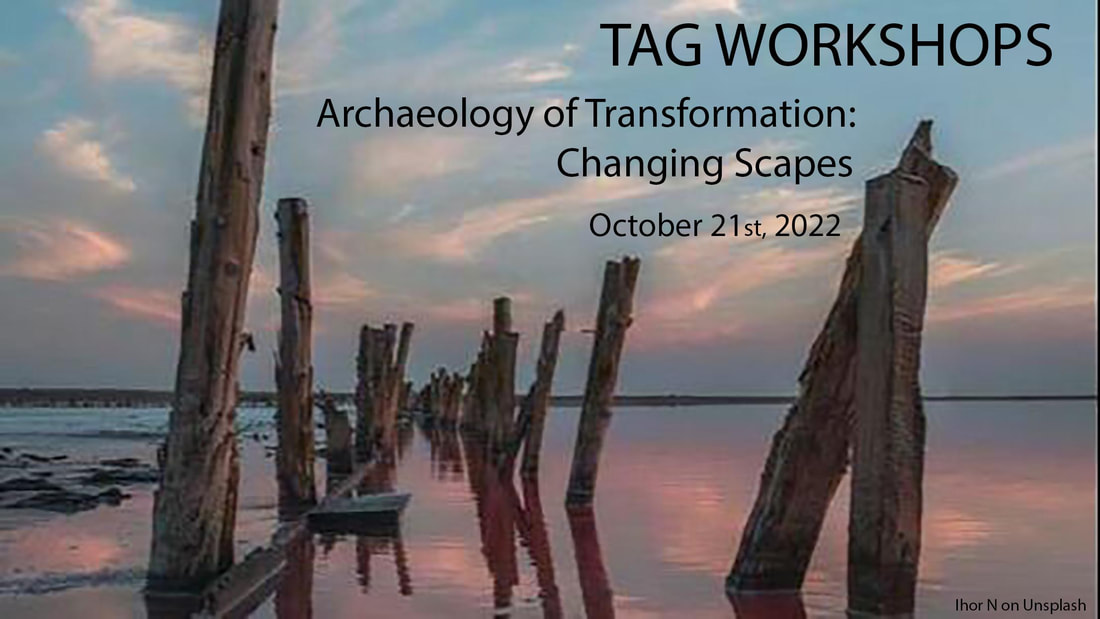University of Chicago (held virtually) October 21, 2022
VIDEO COMING SOON!
VIDEO COMING SOON!
In the face of sudden, large-scale social and environmental changes, it can be easy to neglect the gradual and less visible changes that create the conditions for both crisis and positive transformations. Theoretical archaeologists have recently turned to a proliferation of “scapes,” extending ways of thinking that originated in landscape archaeology to other spheres such as “seascapes,” “knowledgescapes,” and “objectscapes,” among many others. Yet the utility of generating so many “scapes” has been called into question.
Does the plurality of scapes offer a way to explore different loci of human experience, or does it unduly fracture the world into distinct domains, each with its own “scape”? Other critiques have addressed importing the landscape concept’s visual bias and its peculiar ways of understanding historical change. Can we move past these constraining connotations and employ “scapes” to think about longer term, gradual transformations and temporality? What do we gain by defining different “scapes,” and what types of information might we lose?
This conference explored these questions in order to understand the value of scapes in focusing archaeological attention toward long-scale change.
Co-organizers: Anna Berlekamp ([email protected]), Nikki Grigg ([email protected]), Daniel Hansen ([email protected]), and Luiza Osorio G. Silva ([email protected]).
FULL SCHEDULE
Does the plurality of scapes offer a way to explore different loci of human experience, or does it unduly fracture the world into distinct domains, each with its own “scape”? Other critiques have addressed importing the landscape concept’s visual bias and its peculiar ways of understanding historical change. Can we move past these constraining connotations and employ “scapes” to think about longer term, gradual transformations and temporality? What do we gain by defining different “scapes,” and what types of information might we lose?
This conference explored these questions in order to understand the value of scapes in focusing archaeological attention toward long-scale change.
Co-organizers: Anna Berlekamp ([email protected]), Nikki Grigg ([email protected]), Daniel Hansen ([email protected]), and Luiza Osorio G. Silva ([email protected]).
FULL SCHEDULE

